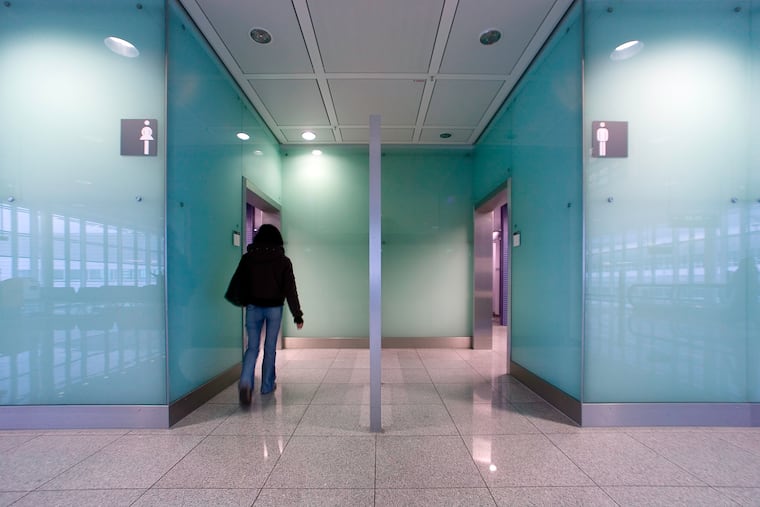Medical mystery: The healthy young woman who feared losing control
The new college student described an increasing fear that she would become sick to her stomach while away from home and — before she could find a bathroom — experience a bout of very public diarrhea.

My new patient was a petite young woman sporting a retro punk rock look complete with brightly dyed hair, multiple piercings, and combat boots. But what really struck me was how thoroughly embarrassed she was to reveal why she was seeking help from a therapist.
She described an increasing fear that she would become sick to her stomach while away from home and — before she could find a bathroom — experience a bout of very public diarrhea. For her, this meant severe anxiety while riding the subway, shopping, or simply going to a park.
She reported that these fears had intensified since moving away from her suburban home and starting college in the city four months prior.
“I haven’t made any friends since I came to college, because I spend all my time in my dorm room close to a bathroom,” she told me. “I’m thinking about breaking up with my high school boyfriend, but I can’t because he drives me everywhere and doesn’t complain that we only go out to places close to my home. I’d like to see concerts and I can’t go because I might not be able to find a bathroom in time.”
While staying home did mean she was studying more and getting good grades, she also worried about long-term consequences.
“I can’t travel anywhere so I will never be able to take a real vacation,” she said. “ I don’t know what I am going to do when I have to get a job or have a career.”
Had she, I asked, experienced a bout of public diarrhea in the past so humiliating that she was traumatized? No. She had never lost control of her bowels in public. Moreover, she reminded me that public diarrhea, while embarrassing and stressful, was not the sort of life-threatening and terrorizing trauma that would be required for a diagnosis of PTSD (she was studying psychology and she was right).
Did she have a condition like Crohn’s disease that could result in frequent diarrhea?
No, her doctor gave her a clean bill of health. Besides, she was careful to note, her stomach cramps seemed to be specifically triggered by stress and anxiety. Yet they rarely resulted in diarrhea.
Without a solid basis for her fear, could it be an unconscious expression that she felt unready for college? A “safe” way of conveying dependence and a desire to return home? Possibly, but it is quite normal for young adults to have such feelings during times of transition and quite rare for them to develop such crippling and specific symptoms as my otherwise well-adjusted patient.
So what was this young woman’s real trouble?
Solution
The correct diagnosis was agoraphobia, an anxiety disorder. Agoraphobia translates from Greek as “fear of the open marketplace,” but is better understood as anxiety of having a sudden, uncontrollable, uncomfortable or embarrassing physical experience where escape “back to safety” would be difficult or impossible.
People with agoraphobia begin to anticipate and avoid these situations, which reduces anxiety in the short-term, but at the expense of independence and self-esteem in the longer-term. For most people with agoraphobia, the feared experience is a panic attack, but agoraphobic avoidance also presents with fears of sudden bowel or urinary incontinence, vomiting, migraines, or – in the elderly – falling down.
It is important to note the vicious cycle of my young patient’s anxiety and avoidance: becoming anxious in a public setting did tend to induce stomach upset (a common and benign symptom of anxiety), in turn making her more anxious and more prone to leave or avoid it altogether.
The scientifically supported treatment for agoraphobia is exposure-based cognitive behavior therapy (CBT), where patients are encouraged to expose themselves gradually to situations they have been avoiding and stay despite mounting anxiety. Exposures are collaborative mini-experiments devised by therapists and their patients to test out what happens when fear is no longer allowed to drive decision making about how to live one’s life.
We started with exposures to riding the trolley and she worked her way up to attending loud concerts in huge venues where the bathroom was far off, and probably required waiting in a line. In 10 sessions, she graduated from therapy and went off to live her life. She made some new college friends, and split up with the high school boyfriend.
Katherine K. Dahlsgaard is the clinical director of the Anxiety Behaviors Clinic at the department of child and adolescent psychiatry and behavioral sciences at Children’s Hospital of Philadelphia.